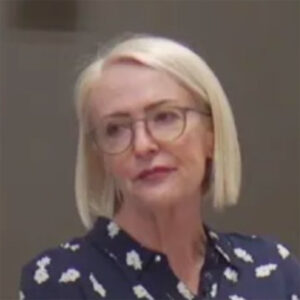Debate on State Responses to Covid-19
Emerging from the emergency [1]
29th of December, 2021

Davide Caselli, Carlotta Mozzana and Barbara Giullari
All over the world, although with significant differences, the Covid-19 public health crisis has rapidly evolved into a social emergency, with states “discovering” – as a consequence of the lockdowns and restrictions to social and commercial activities – millions of individuals and families (totally or partially) excluded from existing social security systems aimed at preventing citizens from poverty.
Going back to the root of the word “emergency” – becoming visible – in the last two years we have seen in Italy as elsewhere, the “emergence” in the public sphere of two groups. On the one hand, the most vulnerable population, living at the margins of both production and institutionalized reproduction (public welfare): precarious workers, working poor and unemployed, homeless, undocumented and recent immigrants. On the other hand, the social and political activist groups that struggle to respond to the social emergency and to make it a political issue, criticizing the politics and policies of invisibilization of vulnerable groups.
Two years after the crisis outbreak, the extraordinary measures and initiatives to alleviate the hardest aspects of pan-syndemic impoverishment have not put into question extant policies and the cognitive and normative frames upon which they are based.
This double emergence reflects the complexity of the pan-syndemic and reveals the imbrication of sanitary, social and political dimensions in the interpretation of an emergency outbreak.
We can learn from the experience and the critical thinking about “natural” and health emergencies that such complexity can be conceived in two fundamentally different ways: as a punctual and extraordinary “natural” emergency or as the arrival point of longer cycles of hegemonic models of economic and cultural development.
In the first case, what is required is the mobilization of technical and operational abilities for the immediate reaction and alleviation of its consequences, mainly conceived in humanitarian terms: it is the dominant understanding of “preparedness” (based on highly abstract modelling of risks, stockpiling of health and food supplies, activation of standardized emergencies protocols, etc.) which does not question the origins of the catastrophe. In the second case, an alternative, transformative idea of “preparedness” can be mobilized, to cultivate the radical rethinking of the dominant economic model and the practical experimentation of alternatives. While obviously this does not exclude the need to promptly respond emergency outbreaks, it points to a different way of doing it, based on four principles: 1) the shift from short temporal terms of emergency to the longer temporal horizon of historical and ecological transformations; 2) the democratization of the process of definition of emergency and emergency responses; 3) rethinking the notion of vulnerability not as an exception but as the fundamental feature of individual and social life, in the wake of feminist ethics of care; 4) contrast the dominant “humanitarian” approach to emergency through a politicization of health, natural and social crises.
It is urgent to develop critical discussion among researchers, activists and citizens around these issues, with the hope and the determination to help making a counter-hegemonic cultural, social and political movement emerge from the emergency.
[1] These reflections come from a joint work in the context of the research project PRELOC (Building Local Preparedness to Global Crises), led by Prof. Lavinia Bifulco https://centri.unibo.it/cidospel/it/ricerca/prelocproject/2020-1150_preloc_-definitivo.pdf/@@download/file/2020-1150_PRELOC_%20definitivo.pdf
Davide Caselli
Davide Caselli is a post-doc researcher at University of Milano-Bicocca. His work is focused on expertise, social policy and financialization. He is member of the Foundational Economy Collective (https://foundationaleconomy.com) and the Sui Generis Research Lab (http://laboratoriosuigeneris.altervista.org).
Carlotta Mozzana
Carlotta Mozzana is assistant professor at the Department of Sociology and Social Research of the University of Milano-Bicocca. Her main research interests include the role of knowledge in decision making processes, the transformation of public action, the forms of social vulnerability and the socio-institutional changes of welfare.
Barbara Giullari
Barbara Giullari (Ph.D. Sociology and Social policy) is Associate Professor of Economic Sociology at the SDE - Sociology and Business Law Department - University of Bologna where she teaches “Local Social Planning” and “Labour and Care Regime”. Her main research interests are related to transformations of work and employment trajectories, social work, transformations of welfare systems and local social planning, knowledge and public action, educational policies development.
Read the other essays on the State Responses to Covid-19 here:







